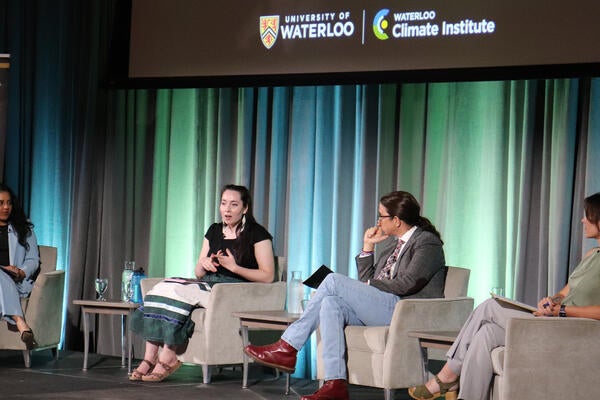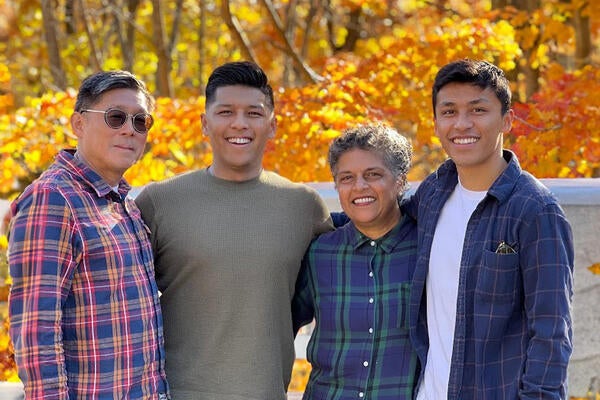
Co-op abroad: Passport to a wider world view
As a co-operative education leader, Waterloo offers students the opportunity to enhance their education while developing international connections and experience.

As a co-operative education leader, Waterloo offers students the opportunity to enhance their education while developing international connections and experience.
By Christian Aagaard Communications & Public Affairs Jillaine Ye, co-op student, embarks on shark dive during her work term at Scuba World, Mooloolaba, Sunshine Coast, Queensland.
Jillaine Ye, co-op student, embarks on shark dive during her work term at Scuba World, Mooloolaba, Sunshine Coast, Queensland.
Here’s the challenge Merrirose Stone welcomes every morning when she gets to work:
“How do we create global, internationalized students?” says Stone, student advisor, international, with Co-operative Education & Career Action (CECA) at the University of Waterloo.
Sometimes as a career coach, a life coach, a cultural attaché, a fixer or a friendly ear, Stone helps students prepare for — and settle into — international work terms and internships.
Co-op has been part of Waterloo’s learning experience since the earliest days of the institution in the late 1950s. International postings used to mean placements in the United States. Now there are opportunities in approximately 60 countries.
It fits into Waterloo’s push for “internationalization” one of the university’s six foundational pillars. Over five years, Stone says, she went from arranging about 75 international co-op jobs per term to sometimes more than 300. Some are paid; others may offer compensation through accommodation or travel expenses.
Preparing for change
When Stone talks to a student, she’s listening for maturity and adaptability. It comes down to this, she says: “How do you prepare that student to have optimum success on their work term? How well will they deal with the experiences and cultural differences they will encounter?
“Each student represents a different case.’’
The process bears in mind that international co-op also carries the brand of Waterloo, and the reputation of the Faculties involved.
Besides cultural training, work undertaken by Stone and her CECA colleagues includes arranging visas, checking bilateral trade and education agreements, and looking out for travel advisories issued by the federal government.
Most students come home with a wiser, broadened outlook. The next thing to do, Stone says, is to turn that “proclivity to work in different places, among different cultures” into an attractive employment edge.
Every so often, Stone runs into former students whose new careers were charted, at least in part, by an out-of-country work term she helped arrange.
“It’s the ones that come back and say thanks that keep me passionate about what I do,” she says.

Read more
TRuST Scholarly Network hosts conversation on charting a course through climate misinformation to promote informed climate action

Read more
With robotics, 3D technology, AI and more, Waterloo students are advancing the future of health care in Canada

Read more
Gratitude for co-op and lifelong friendships motivates Ruhuni de Alwis to give back
The University of Waterloo acknowledges that much of our work takes place on the traditional territory of the Neutral, Anishinaabeg, and Haudenosaunee peoples. Our main campus is situated on the Haldimand Tract, the land granted to the Six Nations that includes six miles on each side of the Grand River. Our active work toward reconciliation takes place across our campuses through research, learning, teaching, and community building, and is co-ordinated within the Office of Indigenous Relations.